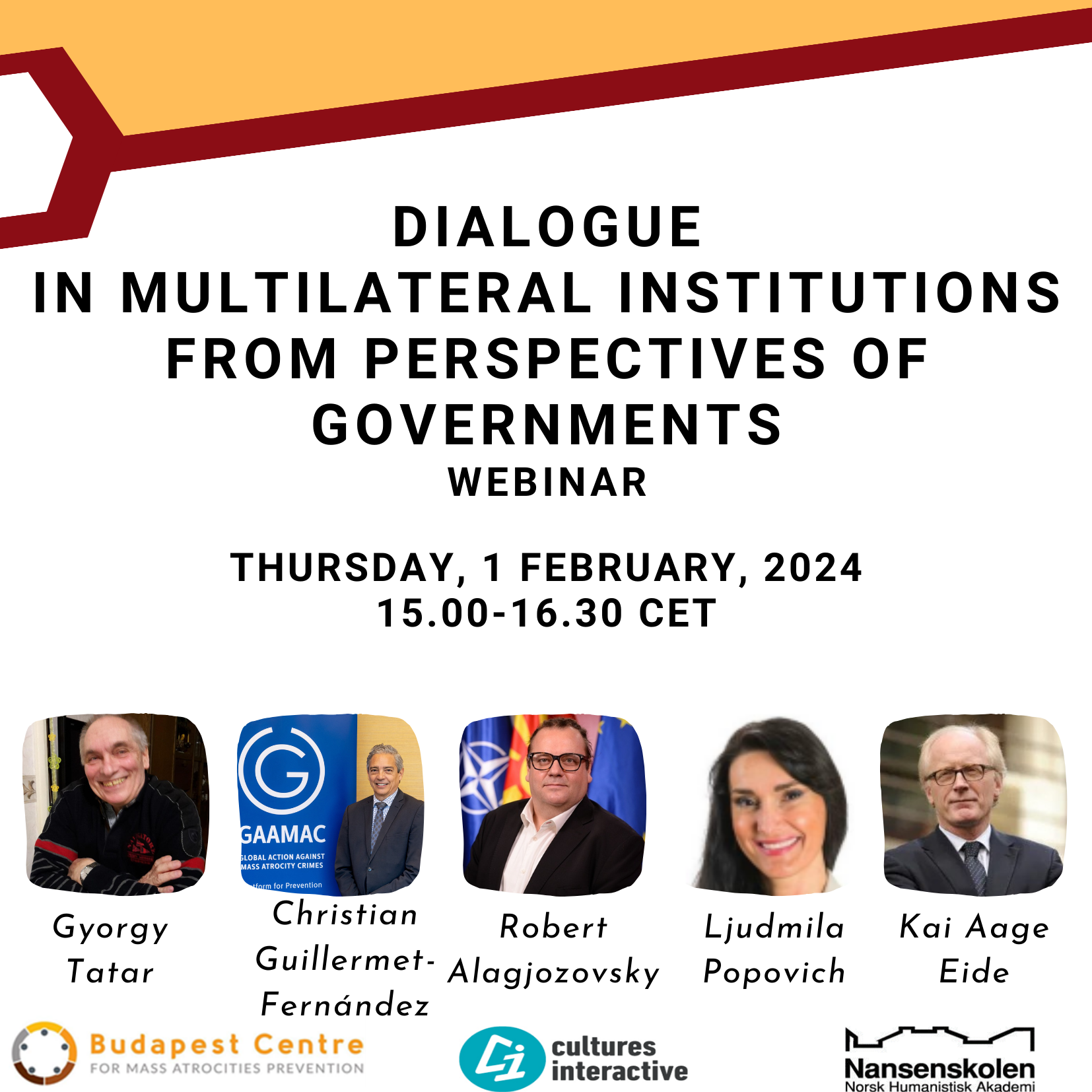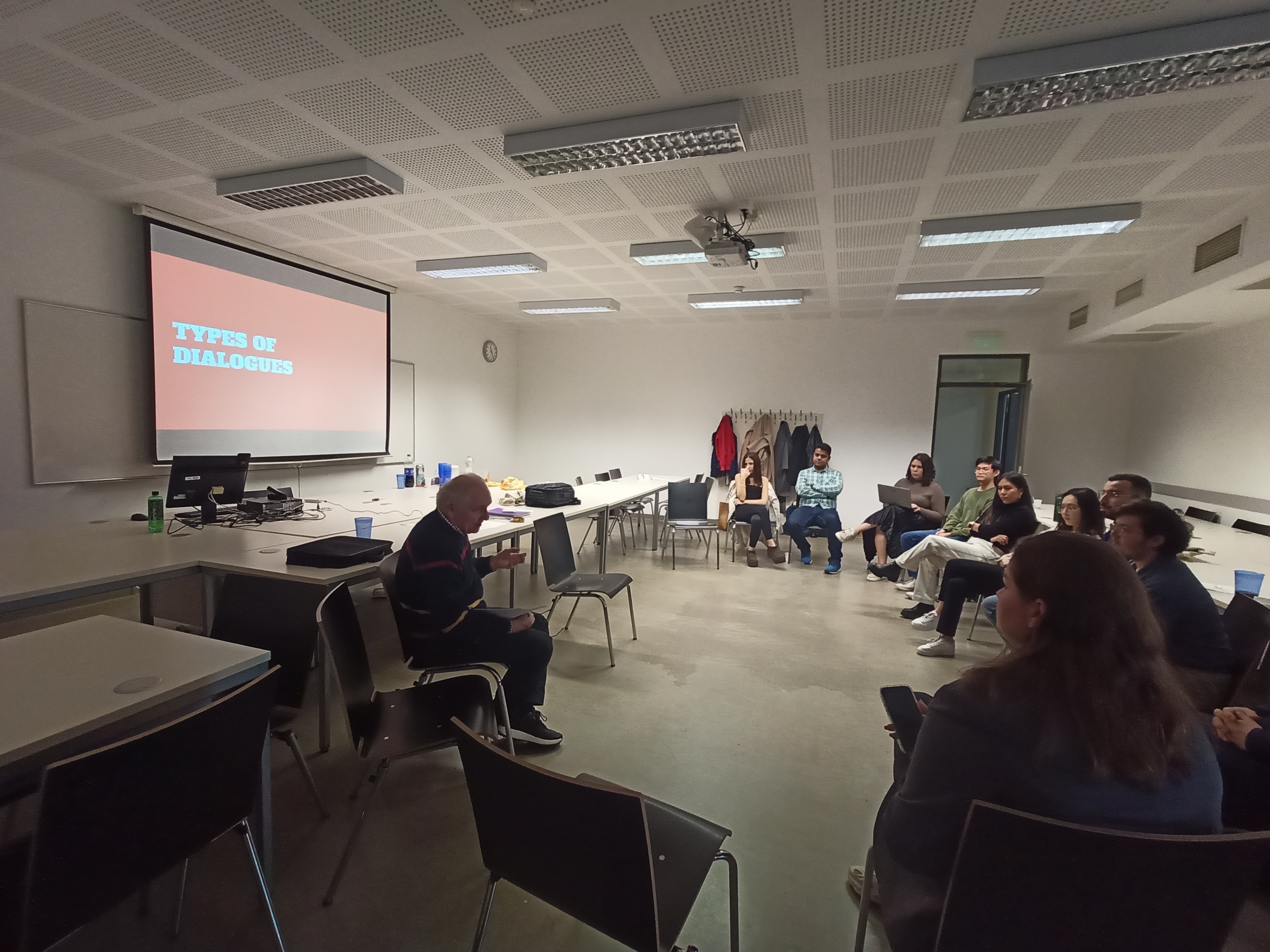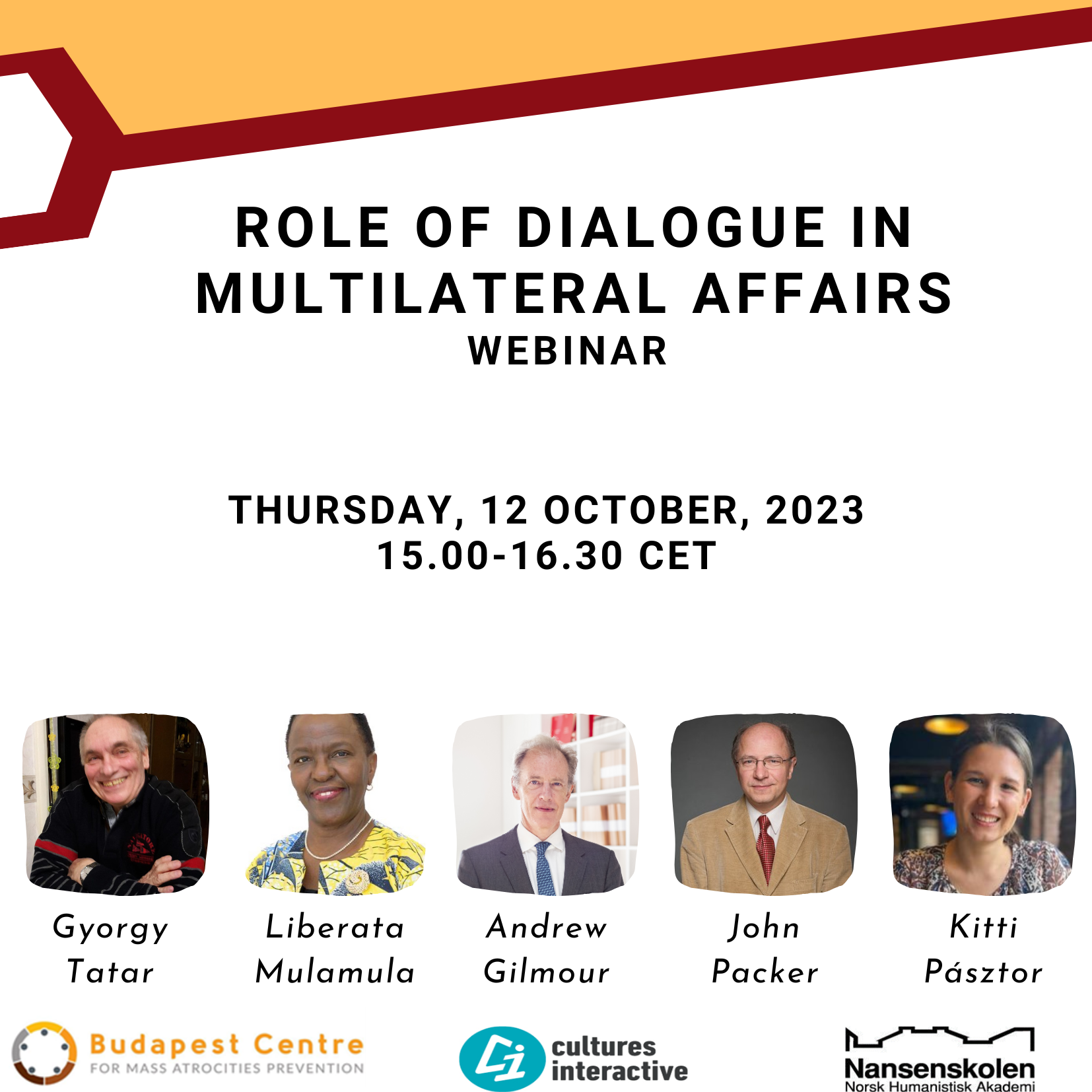- |
- Category: Events
- |
- Category: Events
During this event senior governmental officials will share their views on how dialogue could support the decisions in multilateral organizations to sustainably address global challenges and respond to risks of mass atrocity crimes.
Please click here to access the invitation!
Please click here to access the registration link! The webinar link will be sent to your email address before the event.
- |
- Category: Publications
- |
- Category: Publications
- |
- Category: Publications
- |
- Category: Publications
You may read the article if you click here.
- |
- Category: Events
- |
- Category: Events
Inspired by the trainings of the Nansen Center for Peace and Dialogue, the Budapest Centre for Dialogue and Mass Atrocities Prevention completed its first interactive and practice oriented skills building in facilitation of dialogue being a tool for managing diversities, preventing and handling radicalization and violent conflicts. The three four hour sessions took place in cooperation with the College for Advanced Studies of Diplomacy in Practice at the Corvinus University of Budapest.
Based on the positive feedback received from the participants, the Budapest Centre will continue its skills building activities and tailor the agenda of the sessions to the needs of students, political activists and businesspersons with the view to increase their potentials for engaging in communication despite conflicting views.
- |
- Category: Events
- |
- Category: Events
The record of the webinar could be watched .
The updated documents on the „Alliance for Dialogue” and „Institutionalization of Dialogue” you may read here.
- |
- Category: Events
- |
- Category: Events
During this event former senior officials in the UN, OSCE and ICGLR will share their views and experience in using dialogue for addressing sustainably the challenges, in particular the pursuit of human rights and the risks of extreme crimes when shaping an inclusive multipolar world and multilateral system.
Please click here to access the invitation!
Please click here to access the registration link! The webinar link will be sent to your email address before the event.
- |
- Category: Publications
- |
- Category: Publications
A projekt tapasztalatairól készült összefoglaló a Közjogi Szemle 2023/2 számában jelent meg, amelynek pdf változatát itt olvashatja.
- |
- Category: Publications
- |
- Category: Publications
The experience of the series of dialogue has been published in the Hungarian Quarterly Review of Public Law in August 2023. The English version of the article you may wish to read here.








